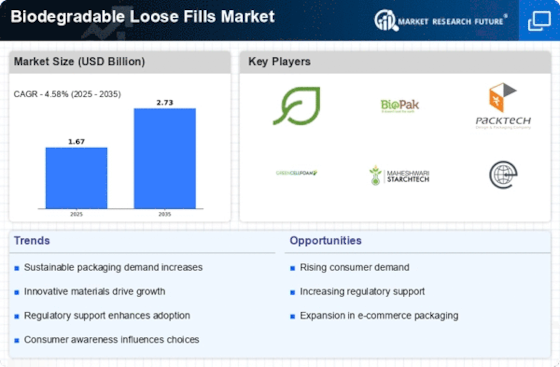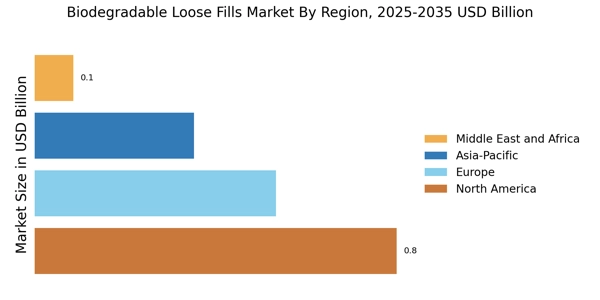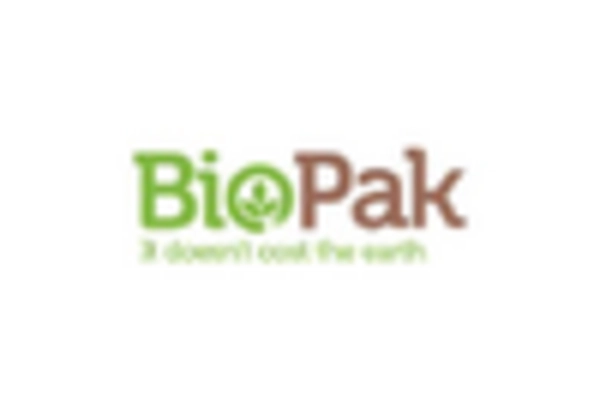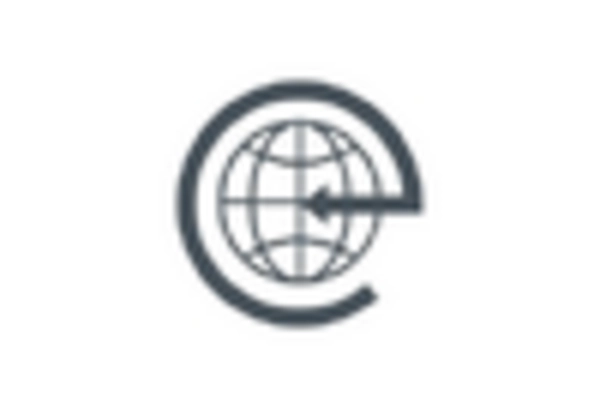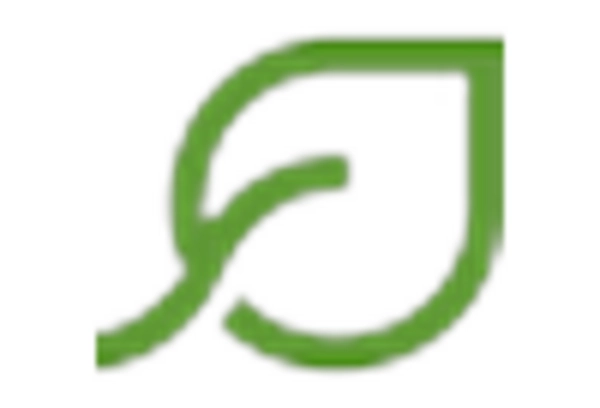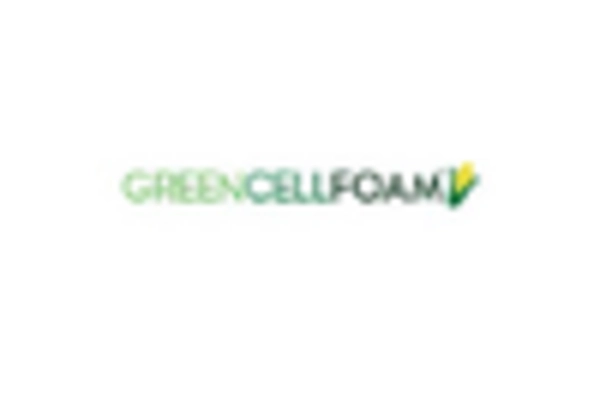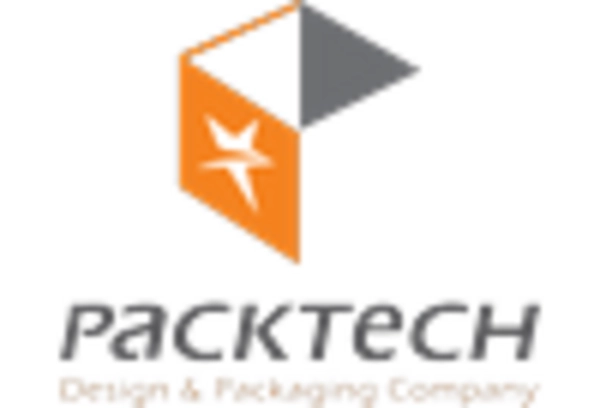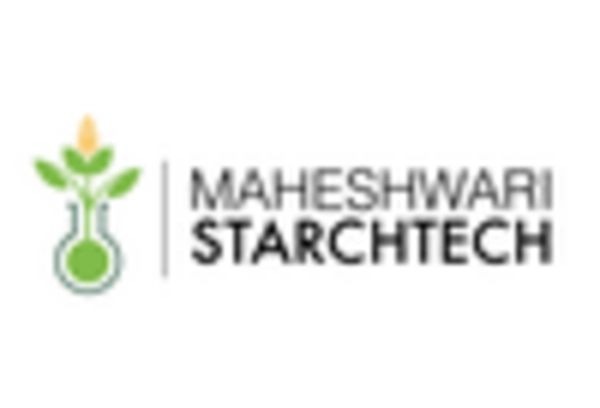Sustainable Material Innovation
The Biodegradable Loose Fills Market is experiencing a notable shift towards sustainable material innovation. Manufacturers are increasingly investing in research and development to create new biodegradable materials that can effectively replace traditional plastic loose fills. This innovation is driven by the growing awareness of environmental issues and the need for sustainable packaging solutions. For instance, materials derived from cornstarch, mushroom mycelium, and recycled paper are gaining traction. The market for biodegradable packaging is projected to reach USD 400 billion by 2025, indicating a robust growth trajectory. As companies strive to meet consumer expectations for eco-friendly products, the emphasis on sustainable material innovation is likely to propel the Biodegradable Loose Fills Market forward.
Corporate Sustainability Initiatives
Corporate sustainability initiatives are increasingly influencing the Biodegradable Loose Fills Market. Many companies are adopting comprehensive sustainability strategies that encompass their entire supply chain, including packaging materials. This shift is often motivated by the desire to enhance brand reputation and meet stakeholder expectations. As part of these initiatives, businesses are actively seeking biodegradable loose fills to minimize their environmental impact. Reports suggest that companies implementing sustainability practices can see a 20% increase in customer loyalty. This trend is likely to drive demand for biodegradable packaging solutions, as firms recognize the importance of aligning their operations with sustainable practices. The commitment to sustainability is expected to significantly impact the Biodegradable Loose Fills Market in the coming years.
Technological Advancements in Production
Technological advancements in production processes are transforming the Biodegradable Loose Fills Market. Innovations in manufacturing techniques are enabling the efficient production of biodegradable materials, which can be tailored to meet specific performance requirements. For instance, advancements in extrusion and molding technologies are allowing for the creation of biodegradable loose fills that offer comparable protective qualities to traditional materials. This technological progress not only enhances product performance but also reduces production costs, making biodegradable options more accessible to manufacturers. As technology continues to evolve, it is anticipated that the Biodegradable Loose Fills Market will benefit from increased efficiency and reduced environmental impact, further driving market growth.
Consumer Demand for Eco-Friendly Packaging
Consumer demand for eco-friendly packaging is a pivotal driver in the Biodegradable Loose Fills Market. As environmental consciousness rises, consumers are increasingly seeking products that align with their values. This trend is reflected in the packaging choices made by businesses, which are now prioritizing biodegradable options. Surveys indicate that over 70% of consumers are willing to pay a premium for sustainable packaging. This shift in consumer behavior is compelling companies to adopt biodegradable loose fills as a viable alternative to traditional materials. The increasing preference for eco-friendly packaging solutions is expected to enhance the market's growth, with the biodegradable packaging sector projected to expand at a CAGR of 15% through 2025.
Regulatory Influence on Packaging Practices
Regulatory influence on packaging practices plays a crucial role in shaping the Biodegradable Loose Fills Market. Governments worldwide are implementing stringent regulations aimed at reducing plastic waste and promoting sustainable packaging solutions. For example, several countries have introduced bans on single-use plastics, which has led to a surge in demand for biodegradable alternatives. These regulations not only encourage manufacturers to innovate but also create a favorable environment for the adoption of biodegradable loose fills. The compliance with these regulations is becoming increasingly important for businesses, as non-compliance can result in significant penalties. Consequently, the regulatory landscape is likely to drive the growth of the Biodegradable Loose Fills Market as companies adapt to meet new standards.


